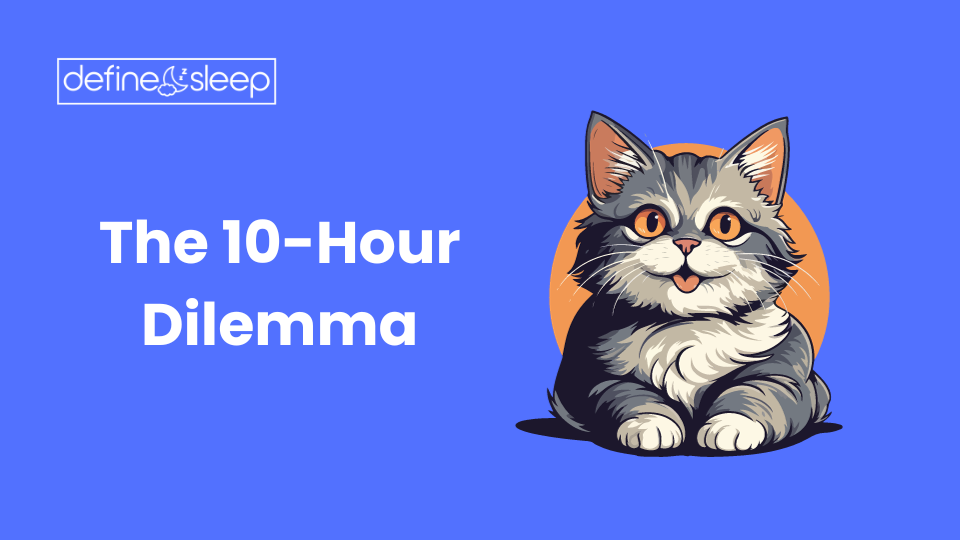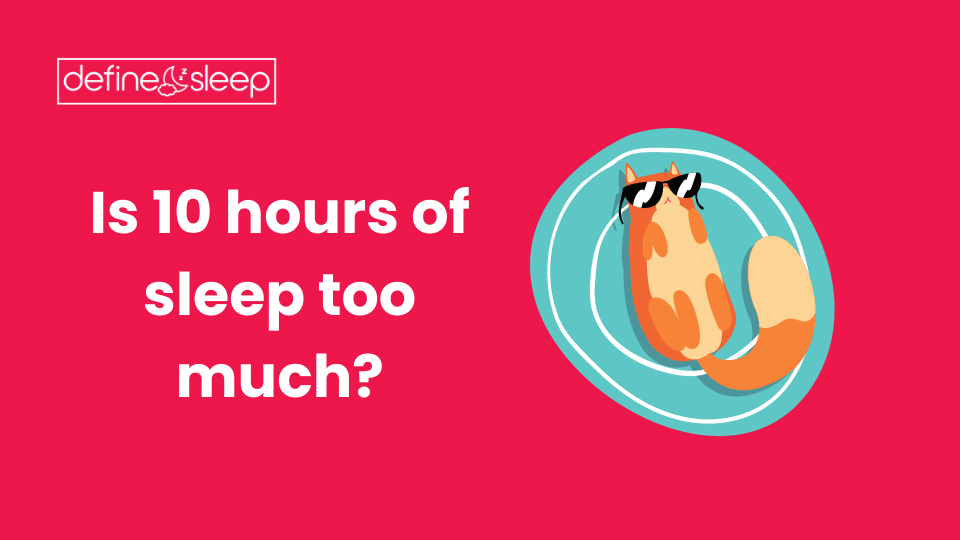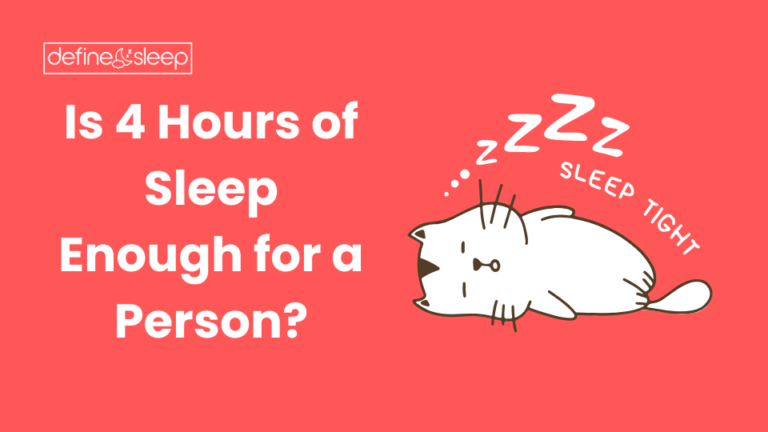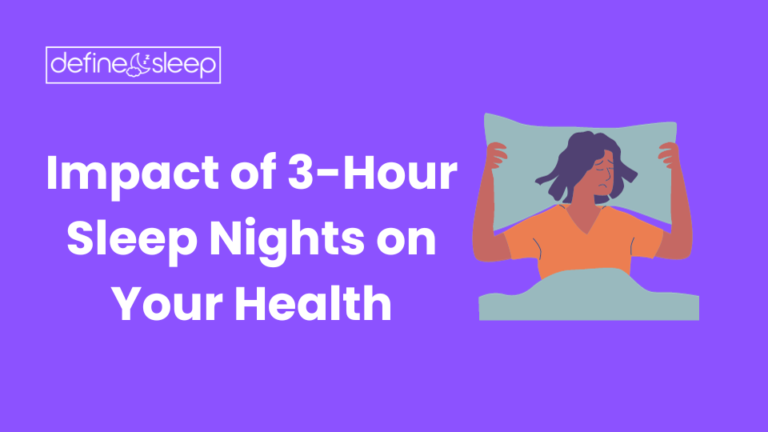Various questions keep emerging in our minds regarding sleep. Most of you have heard that lack of sleep has bad effects on your health. But what if we get 10 hours of sleep? Is 10 hours of sleep harmful to our health?? Is it a sign of self-care skills or an unintentional leap into the realm of excessive comfort? So, in today’s article, we will try to find out the answers to these various questions. So join us on this journey.
The Importance of Sleep:

Before we explore the optimal sleep duration. It’s crucial to understand the significance of sleep itself. Sleep is not merely a state of rest; it is a complex process that plays a vital role in physical health, mental well-being, and overall quality of life.
During sleep, the body undergoes essential processes such as muscle repair, memory consolidation, and hormone regulation. If I try to explain to you in simple words. So, a man is a machine, and the repair of this machine is his sleep. The more sleep a person gets, the faster the human machine is repaired. So sleep is very important for human health and life.
The Goldilocks Zone:

The consensus suggests that 7 to 9 hours of sleep is the sweet spot for adults. However recent studies have sparked a reevaluation of this norm. The concept of the “Goldilocks Zone” is gaining traction, suggesting that individual sleep needs may vary. Some people may thrive on 7 hours, while others may require 9 or even 10 hours to function optimally.
We understand one thing from all these things. That the amount of sleep can be different for each person. If there is a young man who works hard all day. For this, 7 to 9 hours of sleep is very important. But if we talk about a child, even ten hours of sleep is very important for him. So the amount of sleep can be related to a person’s work throughout the day, or it can also be related to his health. A patient needs a maximum amount of sleep to get rid of his illness.
Factors Influencing Sleep Duration:

Several factors influence the ideal sleep duration for an individual. Age, lifestyle, overall health, and stress levels all play a role. Additionally, genetics can contribute to variations in how much sleep different people need. It’s essential to recognize that a one-size-fits-all approach to sleep may not be suitable for everyone. So it is more complicated to answer the question that 10 hours of sleep is harmful or beneficial for a person. Because most of it can depend on different factors.
If a person works for 10 to 12 hours a day, then he will definitely need 10 hours of sleep. But if we look at the other side. A person who works for two or three hours or does not work at all stays at home. So ten hours of sleep can be harmful for this person. This can cause him to become obese. So it is very difficult to say that 10 hours of sleep is too much or harmful for any person.
The 10-Hour Dilemma:

Let’s address the elephant in the room: Is 10 hours of sleep too much? According to sleep experts, consistently sleeping for 10 hours or more might be excessive for some individuals. Oversleeping can lead to a range of health issues, including cardiovascular problems, obesity, and increased mortality risk. However, it’s crucial to distinguish between occasional long nights of sleep and a consistent pattern of oversleeping۔
Finding Your Sweet Spot:

The key lies in finding your personal sleep sweet spot. Pay attention to your body’s signals and adjust your sleep routine accordingly. If you consistently feel sluggish after 8 hours of sleep or find yourself needing a nap during the day, you might benefit from extending your sleep duration.
On the other hand, if you wake up feeling refreshed after 7 hours, there’s no need to force yourself into a longer sleep routine. So you should pay little attention to your health and adjust your sleep duration yourself. How much sleep you need depends on you. If you work for 10 to 12 hours and you feel good even with eight hours of sleep. So you don’t need to sleep much. So set your sleep duration.
Conclusion:

In the quest for optimal sleep, there’s no one-size-fits-all answer. While 10 hours of sleep might be excessive for some, it could be just what others need to thrive. The key is to listen to your body, prioritize a consistent sleep schedule, and make adjustments as necessary.
Rather than fixating on a specific number, focus on the quality of your sleep and how it enhances your overall well-being. After all, a good night’s sleep is not just about quantity; it’s about finding the perfect balance that allows you to wake up feeling revitalized and ready to conquer the day.
FAQ

Q: Is it normal to feel groggy after a night of 10 hours of sleep?
A: While it’s commonly believed that more sleep equates to feeling more refreshed, the quality of sleep matters just as much as quantity. If you’re consistently feeling groggy after 10 hours of sleep, it may be worth evaluating your sleep environment, bedtime routine, and overall sleep quality.
Q: Can oversleeping be harmful to my health?
A: Yes, oversleeping on a regular basis has been linked to various health issues. Studies suggest that consistently sleeping for 10 hours or more may increase the risk of cardiovascular problems, obesity, and other health concerns. It’s essential to find a balance that aligns with your body’s natural sleep needs.
Q: How can I determine the right amount of sleep for me?
A: Paying attention to your body’s signals is key. If you consistently feel alert and energetic with 7 hours of sleep, you might not need more. On the other hand, if you find yourself fatigued even after 8 or 9 hours, consider gradually adjusting your sleep duration. Experiment with different amounts until you discover the optimal sleep duration that leaves you feeling refreshed.
Q: Does age influence how much sleep I need?
A: Yes, age plays a significant role in determining the ideal amount of sleep. Generally, newborns and infants need more sleep, while the recommended hours gradually decrease as individuals age. Adults typically thrive on 7 to 9 hours of sleep, but individual variations exist. Older adults may find satisfaction with slightly fewer hours of sleep.
Q: Is it possible to catch up on missed sleep during the weekends?
A: While catching up on sleep during the weekends can temporarily alleviate sleep debt, it’s not a long-term solution. Irregular sleep patterns can disrupt your circadian rhythm and lead to negative health effects. Strive for a consistent weekly sleep schedule to ensure better overall sleep quality.
Q: Can stress and lifestyle impact my sleep duration?
A: Absolutely. High stress levels, an erratic lifestyle, and poor sleep hygiene can all contribute to sleep disturbances. Managing stress, establishing a regular bedtime routine, and creating a comfortable sleep environment can positively influence the quantity and quality of your sleep.
Q: Are there genetic factors that determine how much sleep I need?
A: Yes, genetics can influence individual sleep needs. Some people are naturally “short sleepers,” requiring fewer hours of sleep, while others are “long sleepers” who benefit from a longer duration. Understanding your family’s sleep patterns may provide insights into your own sleep requirements.
Help From ChatGPT4




